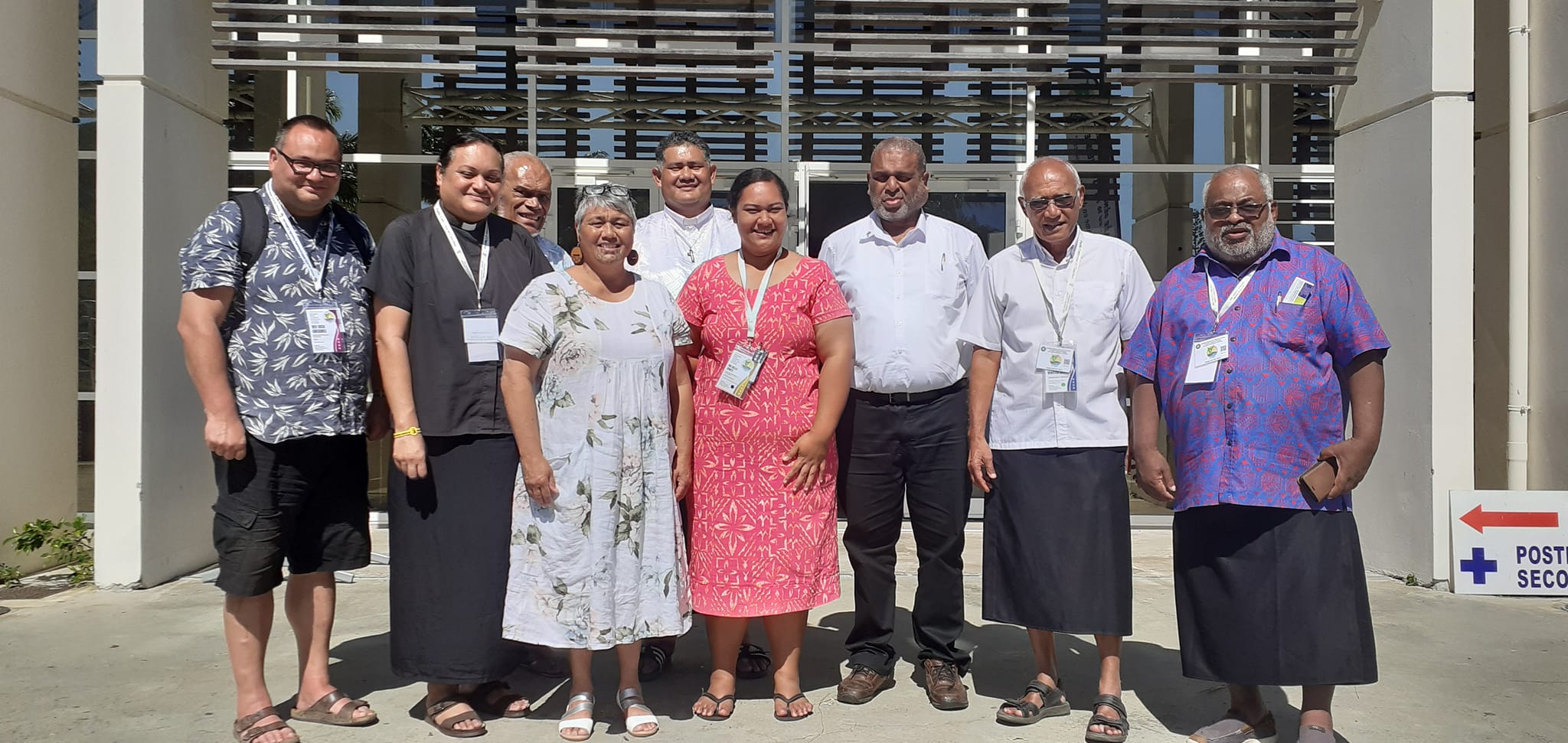Vianney Douglas had her eyes opened to the real-time impacts of climate change on Pacific communities during a visit to New Caledonia, “it was so nerve-racking because I didn’t know anyone else going,” she recalls.
Additionally, she was unfamiliar with the Pacific Conference of Churches and hadn’t heard the name before Archbishop Don Tamihere asked if she’d attend the group’s General Assembly.
Then there was the language barrier – the official language of New Caledonia is French.
Vianney’s role at the meeting was to be an observer representing Te Pīhopatanga o Aotearoa. After three days of listening to presentations from world-renowned theologians from across the Pacific, Vianney has returned to Tauranga feeling emboldened.
“It’s helped me make some major personal decisions around where I want to put my energies in the next couple of years,” Vianney says.
The third day of presentations, which had the theme ‘Transformation as Ecological Stewardship’ in particular left a big impression on her. Vianney says the first speaker, Maureen Penjueli who is the coordinator for the Fiji-based Pacific Network on Globalisation, set the scene at the start of the day. “She told us that as humans, we have ushered in a new epic – that we have altered the planet so significantly through our behaviour, and she presented some of the data around the devastation that has been caused. That was quite powerful,” Vianney recalls.
“We spoke about how we actually need action, but the governments are responding so slowly that they’re going to have no impact at all. So it’s going to be communities taking the action to be able to address some of the impacts of climate change.”
Two days after arriving back in Aotearoa, Vianney weaved a message of helping our Pacific neighbours into her Sunday morning reading, using the gospel of Matthew 25 which speaks of reaching out to those who need support.
“It’s about not looking internally but looking outward at our neighbours and the support you can provide them. Some of the issues those Pacific nations are facing really do need our support and our voice needs to be loud and clear as a church,” Vianney says. “We seem to be really quiet these days around lots of issues and we need to be explicit around some of these issues that our Pacific brothers and sisters are facing.”
She’d also like to see the church helping people prepare for the impacts of climate change.
“I think that if we really want to be a flourishing church we need to be working in areas where our people need support the most. It’s supporting people through hard times like Covid and the recent cyclone, but I think it needs to go beyond that. It has to be supporting whānau in being prepared for the future. It has to be around economic development and ensuring our people can survive whatever the changes might be, so that they can continue to feed themselves. I’d like us to have a look at food sovereignty and ensure we have our own kai. I think we need to be involved in sustainable activities, whatever it is that’s going to prepare us to survive. That’s how we’re going to get our flourishing church.”
The church’s young people, she says, need to be given assurance that leaders are taking action. “Many are anxious about the future. They need to see our voice in their social media saying ‘here are some things we are doing’, demonstrating how we can take control of our lives.”
Vianney says the New Zealand and Australian attendees were also thrown a challenge about how Pacific Island workers are treated once they arrive. “They considered it modern slavery because they’re poorly paid and not well cared for. It’s another issue where we need to ask if we’re doing enough – do we invite them into our church to make sure they’re being looked after?”
The General Assembly meets every five years and Vianney says she hopes another representative from the Māori Anglican church will be at the next one – there to listen to what our smaller Pacific neighbours are facing.
*The Pacific Conference of Churches is an ecumenical gathering of Pacific Churches it was founded in 1966 and has 27 member churches and 9 member councils of churches in 17 island states and territories.
